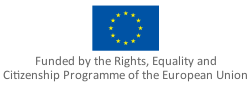
Microsite ADR
Introduction
Criminal proceedings are daunting for all. However, children are more likely to be overwhelmed by the experience and less likely to participate effectively, seriously undermining their ability to receive a fair trial. In its Impact Assessment on a proposal for measures on special safeguards for children and vulnerable adults suspected or accused in criminal proceedings (hereafter, the Impact Assessment), the European Commission (hereafter, the Commission) noted that children “face a higher risk of discrimination or deprivation of their fundamental rights due to their lack of knowledge, maturity or mental and physical disabilities”.
Despite international and regional standards in this area, the Impact Assessment found that the fair trial rights of 1 million children facing criminal proceedings in the EU each year are not sufficiently guaranteed. A 2014 Commission study examined legislation and policy governing children’s involvement in criminal proceedings across the EU, highlighting the lack of key safeguards for child suspects and defendants in many countries.
These include the failure to provide information in a manner specifically adapted to the child’s needs; insufficient protection from lengthy pre-trial detention; limitations on the right to be heard; and the failure to audio-visually record interviews with children.
The European Commission also identified the lack of mandatory specialist training for defence lawyers representing children as a key deficiency in many Member States, including Hungary and Romania. Defence lawyers lack interdisciplinary training (involving, for example, juvenile justice experts -lawyers, judges, prosecutors, NGOs and academics-, social workers and child psychologists) on (a) the international and regional standards which can be used to ensure children enjoy their right to a fair trial, (b) the avenues available for enforcing those standards and (c) the specific skills required to ensure that child suspects and defendants can effectively participate in criminal proceedings.
Furthermore, there is an absence of regional networking opportunities through which defence lawyers representing children can exchange knowledge and develop strategic regional responses to systemic challenges facing their clients.
In this way, the main objective of the project ‘Advancing Defence Rights for Children’ (JUST/2015/RCHI/AG/PROF) is to increase the capacity of defence lawyers to effectively represent children in criminal proceedings, providing tools as well as training and networking opportunities in order to facilitate the achievement of this goal.
The EU Directive on procedural safeguards for children suspected or accused in criminal proceedings, which may reach its transposition deadline during the project timeframe, and other regional and international standards, including the Council of Europe's child-friendly justice guidelines and the UN Convention on the Rights of the Child, have the potential to strengthen the safeguards available for child suspects and defendants in criminal proceedings, but only if legal professionals are fully equipped to use them in their day-to-day practice.
